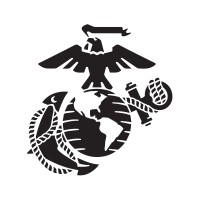
US Army Corps of Engineers Company Cyber Security Posture
army.milU.S. Army Corps of Engineers Mission: Provide vital public engineering services in peace and war to strengthen our Nation’s security, energize the economy, and reduce risks from disasters. Privacy Policy/Social Media Guidelines: https://www.usace.army.mil/SocialMedia/ U.S. Army Corps of Engineers Vision: A GREAT engineering force of highly disciplined people working with our partners through disciplined thought and action to deliver innovative and sustainable solutions to the Nation’s engineering challenges.
UACE Company Details
us-army-corps-of-engineers
26693 employees
222017.0
928
Armed Forces
army.mil
Scan still pending
US _2256143
In-progress
Between 800 and 900
This score is AI-generated and less favored by cyber insurers, who prefer the TPRM score.
 UACE Global Score
UACE Global Score.png)

US Army Corps of Engineers Company Scoring based on AI Models
| Model Name | Date | Description | Current Score Difference | Score |
|---|---|---|---|---|
| AVERAGE-Industry | 03-12-2025 | This score represents the average cybersecurity rating of companies already scanned within the same industry. It provides a benchmark to compare an individual company's security posture against its industry peers. | N/A | Between 800 and 900 |
US Army Corps of Engineers Company Cyber Security News & History
| Entity | Type | Severity | Impact | Seen | Url ID | Details | View |
|---|
US Army Corps of Engineers Company Subsidiaries

U.S. Army Corps of Engineers Mission: Provide vital public engineering services in peace and war to strengthen our Nation’s security, energize the economy, and reduce risks from disasters. Privacy Policy/Social Media Guidelines: https://www.usace.army.mil/SocialMedia/ U.S. Army Corps of Engineers Vision: A GREAT engineering force of highly disciplined people working with our partners through disciplined thought and action to deliver innovative and sustainable solutions to the Nation’s engineering challenges.
Access Data Using Our API

Get company history
.png)
UACE Cyber Security News
US must prioritize cybersecurity training for the military’s engineers
The DOD has not trained military engineers to collaborate with network defenders to secure the industrial control systems against cyber threats.
Contracts For Feb. 19, 2025
Under this contract, the contractor will procure and deliver SM-3 Block IB parts that are manufactured, assembled, and tested in accordance with ...
U.S. Must Prioritize Cybersecurity Training for the Military’s Engineers
US must prioritize cybersecurity training for the military's engineers. Alison King & Annie Fixler & Mark Montgomery DefenseScoop March 17, 2025
Cybersecurity program providing vital services for National Guard, Defense Logistics Agency
The US Army Engineering and Support Center, Huntsville's Cybersecurity Systems Program plays an integral part in security against cyberattacks.
Army Corps’ Huntsville Center will award $3B for nationwide energy savings work
The U.S. Army Corps of Engineers' Huntsville Center will begin awarding $3 billion in contracts to rapidly develop energy savings projects at ...
Challenging the status quo: Security specialist develops app for Army Protection Program
Challenging the status quo isn't easy for everyone. For some, being able to identify areas for improvement and finding solutions comes ...
RMC Global acquires Shearer and Associates, to expand expertise in critical infrastructure and defense
RMC Global, a provider of risk management and industrial cybersecurity solutions for critical infrastructure and critical missions, ...
OPSWAT acquires Fend to enhance industrial cybersecurity with data diode technology
Critical infrastructure cybersecurity company OPSWAT Inc. announced today that it has acquired Fend Inc., a cybersecurity company specializing ...
USACE team ensures Army’s and DOD’s data is protected
“Cybersecurity work is important to almost every aspect and capability we have come to take for granted in today's world,” said Kelly Hills, ITL ...

UACE Similar Companies

Royal Air Force (RAF)
Today’s RAF is the UK’s aerial, peacekeeping and fighting force. It’s made up of full-time Regulars and spare-time Reserves who come from diverse backgrounds and work side-by-side to make a difference at home and abroad. When it comes to recruitment our focus is attracting the best personnel and ens

Israel Defense Forces
The Israel Defense Forces (IDF) is the military of the State of Israel, responsible for the nation's defense and security. Founded in 1948, the IDF ranks among the most battle-tested armed forces in the world, having had to defend the country in six major wars. At the age of 18, men and women are

Air National Guard
The Air Guard offers a part-time position that can make a big difference in your life. We provide state-of-the-art training in a wide range of high-tech positions. The result is real-world career skills that employers are looking for - the kinds of skills that can make all the difference in today's

United States Marine Corps
The United States Marine Corps (USMC) is a branch of the United States Armed Forces responsible for providing power projection, using the mobility of the United States Navy, by Congressional mandate, to deliver rapidly, combined-arms task forces on land, at sea, and in the air. The U.S. Marine Corps

Swedish Armed Forces
The Swedish Armed Forces is one of the biggest authorities in Sweden and is headed by a Supreme Commander. The deputy leader of the authority is the Director General. As the only authority permitted to engage in armed combat, the Swedish Armed Forces are Sweden’s ultimate security policy resource

Department of National Defence/Ministère de la défense nationale
The Department of National Defence (DND) is a Canadian government department responsible for defending Canada's interests and values at home and abroad, as well as contributing to international peace and security. DND is the largest department of the Government of Canada in terms of budget as well a

Frequently Asked Questions
Explore insights on cybersecurity incidents, risk posture, and Rankiteo's assessments.
UACE CyberSecurity History Information
How many cyber incidents has UACE faced?
Total Incidents: According to Rankiteo, UACE has faced 0 incidents in the past.
What types of cybersecurity incidents have occurred at UACE?
Incident Types: The types of cybersecurity incidents that have occurred include .
Incident Details
What are the most common types of attacks the company has faced?
Additional Questions
What Do We Measure?
















Every week, Rankiteo analyzes billions of signals to give organizations a sharper, faster view of emerging risks. With deeper, more actionable intelligence at their fingertips, security teams can outpace threat actors, respond instantly to Zero-Day attacks, and dramatically shrink their risk exposure window.
These are some of the factors we use to calculate the overall score:
Identify exposed access points, detect misconfigured SSL certificates, and uncover vulnerabilities across the network infrastructure.
Gain visibility into the software components used within an organization to detect vulnerabilities, manage risk, and ensure supply chain security.
Monitor and manage all IT assets and their configurations to ensure accurate, real-time visibility across the company's technology environment.
Leverage real-time insights on active threats, malware campaigns, and emerging vulnerabilities to proactively defend against evolving cyberattacks.




